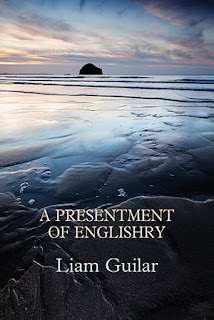The conventional answer is Uther Pendragon. But who was he and where did his story come from?
Early Welsh poetry and prose is a subject area where Angles should fear to tread. It is the province of specialists; I’m not one.
But if we’re looking for the origin of Uther Pendragon then we have to go there.
There are four broad possibilities.
1) Uther Pendragon was always Arthur’s father. This is so unlikely I’m just putting it here to be thorough.
2) Geoffrey invented him. (This is also highly unlikely.)
3) Uther is the result of a mis-translation. Either deliberate or otherwise.
4) An Uther Pendragon existed in the Welsh Arthurian stories but may not have been Arthur’s Father. Geoffrey made the link, possibly due to option three.
The first option is so unlikely I won’t spend any time on it. The second could not be proven one way or the other.
3) The Idea that Uther might be the result of a mistranslation or creative misunderstanding was floated by Perry.
‘As to Uther Pendragon, whom Geoffrey credits with the begetting of Arthur, opinion is divided as to whether there was a tradition about him or whether his name grew out of a misunderstanding of the Welsh uthr, ‘terrible’. ‘
As an adjective, Uthr (Uthir) means: Fearful, dreadful, awful, terrible. tremendous, mighty, overbearing, cruel, wonderful, wondrous, astonishing, excellent. (GPC)
Generally in Welsh the adjective follows the noun it qualifies (not always, generally) so the meaning of something like Arthur mab uthr could be Arthur the terrible/wondrous child if uthr was read as an adjective or Arthur child/son of Uthr if uthr was read or mistaken for a proper noun.
In the world of the poems, such a misunderstanding would be easy. You can see this is something like the poem Mi a Wum.
Mi a wum lle llas Llachev
mab Arthur, uthir ig kertev
ban ryeint brein ar crev
Nerys Ann Jones translates this as:
I have been where Llachau was slain
Son of Arthur, terrible in song
When ravens rushed to gore [or Croaked on Gore]
As she says, it is difficult to know whether the conventional praise uthir ig kertev applies to father son or both. But she thinks it is unlikely uthir here refers to Arthur’s father. She writes; ‘Oliver Padel (personal correspondence) wonders whether Geoffrey of Monmouth might possibly have invented Arthur’s patronym from some phrase such as this.’
However, while I like this option, and keeping in mind the nightmare of dating these early references, an Uthur appears fully fledged as Uthir Pendragon in the poem Pa Gur and in Triad 28.
He’s not named as Arthur’s father in either.
In Pa Gur, one of the characters with Arthur is identified as:
Mabon, son of Modron,
The servant of Uthir Pendragon.
He also appears in triad 28.
Triad 28
Three great enchantments of the Island of Britain:
The enchantment of Math son of Mathonwy (which he taught to Gwydion Son of Don) and the enchantment of Uthyr Pendragon (which he taught to Menw son of Teirgwaedd) and the enchantment of Gwythelyn the Dwarf which he taught to Coll son of Collfrewy his nephew.)
So against the idea that Geoffrey misunderstood or just seized on an idea, can be set Rachel’s Bromwich’s observation: ‘These references [to an early Uthur/Uthr/Uthyr/Uthir], taken together show that Uthyr was known in the pre-Geoffrey Arthurian tradition but they do not prove that, prior to HRB, he was known as Arthur’s father.’ p513
Bromwich also pointed out that in the story Culuwch and Olwen, Menw m. Teirgwaedd is distinguished as a shapeshifter and speculates that Uther’s ‘enchantment’ may have been shapeshifting.
This in turn opens yet another possibility that the shape shifting conception story may have existed before Geoffrey, and the role of Merlin in Arthur’s conception is Geoffrey’s addition.
However, if Geoffrey took an Uthur Pendragon and made him Arthur’s father, he seems to have misunderstood ‘Pendragon’. As we shall see he takes it literarily as ‘Head of the Dragon’ or ‘Dragon’s Head’…Bromwich was convinced that it would more likely have been ‘foremost leader’ or ‘chief of the warriors’. Dragon/draig appear in the early poetry as an accepted euphemism for ‘warriors’.
So, with mind’s spinning joyfully, we can move onto firmer ground and the story of Uther as it appears in Geoffrey of Monmouth.
(See previous post on this topic re references)

